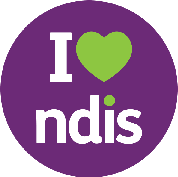Psychosocial recovery coaching is an NDIS-funded service that provides one-on-one support for people living with a psychosocial disability. This support is designed to empower you to take charge of your mental health journey by building resilience, setting meaningful goals, and developing practical strategies for everyday life.
At Centre of Hope, our psychosocial recovery coaches walk beside you on your journey. With a focus on recovery-oriented practice, our team helps you build the confidence, structure, and support network you need to live a more independent and fulfilling life.
In this article, we explore how psychosocial recovery coaching works, the techniques coaches use to help build resilience, and how you can access this support through your NDIS plan.
What Is Psychosocial Recovery Coaching?
Psychosocial recovery coaching is a support available through the National Disability Insurance Scheme (NDIS) for participants with a psychosocial disability. This includes people whose mental health challenges significantly affect their ability to function in daily life.
Unlike traditional support coordination, recovery coaching combines mental health expertise with coaching practices. A recovery coach works with you, your family or carers to:
- Understand your needs
- Build a tailored recovery plan
- Coordinate services and community supports
- Strengthen your daily coping skills
- Increase your independence and resilience
To learn more about the key differences, read our article on Psychosocial Recovery Coach vs Support Coordinator.
Why Is Resilience Important in Mental Health Recovery?
Resilience is your ability to bounce back from challenges, adapt to change, and keep moving forward in the face of adversity. In the context of psychosocial recovery, resilience is about more than just “getting through the day”. It is about developing the skills, mindset and support you need to thrive.
For example, if you live with a condition like schizophrenia, resilience may mean identifying early warning signs, having a support plan in place, and knowing how to respond before symptoms escalate. Your recovery coach helps you develop those personalised strategies, reinforcing your sense of control and confidence.
Top Techniques Used by Recovery Coaches to Build Resilience
Psychosocial recovery coaching is rooted in evidence-based techniques. Below are the core methods coaches use to support participants in developing resilience and long-term wellbeing.
Strengths-Based Approach
Your coach helps you identify and focus on your strengths, rather than just your challenges. Whether you are a great listener, a creative thinker, or someone with strong empathy, these qualities become the foundation for your recovery plan.
This approach shifts the narrative from “what’s wrong” to “what’s strong”, which fosters self-worth and empowerment. Learn more about how we apply this in our work on Centre of Hope’s services page.
Goal Setting and Future Planning
Recovery coaching is all about goal setting and recovery. Your coach will help you set realistic, achievable goals that align with your values and interests, whether it’s joining a community group, learning to budget, or rebuilding relationships.
These goals are broken down into small, manageable steps. As you tick off each step, your sense of capability and motivation grows.
For more on how goal planning works within your NDIS supports, see our blog: 7 Key Benefits of NDIS Psychosocial Recovery Coaching.
Motivational Interviewing
This is a person-centred technique where your coach helps you explore your motivations and resolve ambivalence about change. Through open-ended questions, affirmations and reflective listening, motivational interviewing supports you to identify your own reasons for growth, making the process more sustainable.
It is not about telling you what to do. It is about helping you realise that you already have the drive and resources to move forward.
Trauma-Informed Practice
Many participants with psychosocial disability have a history of trauma. A trauma-informed coach understands how trauma impacts the brain and behaviour, and creates a safe, supportive space where you feel in control.
Trauma-informed coaching includes:
- Respecting your pace and readiness
- Offering choices and collaboration
- Fostering safety, trust and empowerment
This approach is essential for building genuine resilience and reducing the risk of re-traumatisation.
Community Connection and Skill-Building
Recovery coaches support you to reconnect with your community and build everyday life skills. This might include helping you attend social activities, learn to cook, use public transport or volunteer.
Feeling connected and purposeful in your community directly contributes to improved mental health and wellbeing.
Explore more ways to build daily life capacity with our article on Top NDIS Services You Didn’t Know You Could Access.
Coping Strategy Development
Your coach will work with you to identify healthy coping strategies that help you manage stress, triggers and symptoms. These may include:
- Breathing techniques
- Journaling
- Sensory tools
- Exercise or movement
- Social scripts or communication plans
Over time, these tools become part of your daily routine, giving you more stability and confidence.
Encouraging Routine and Structure
A consistent routine provides a sense of predictability and safety. Your coach will help you design a balanced weekly plan that includes:
- Sleep and self-care
- Appointments
- Community participation
- Personal goals
This structure is not restrictive. It is supportive, helping you stay grounded and prepared for challenges.
Real-Life Benefits: What Participants Gain from These Techniques
Through recovery coaching, participants often report:
- Increased self-confidence and independence
- Reduced isolation and better community engagement
- Improved emotional regulation and mental health outcomes
- Stronger self-advocacy and communication skills
Participant Story
Jasmin, 34, lives with complex PTSD and struggled with isolation and trust issues. With the support of her recovery coach, she began setting weekly self-care goals and practicing communication scripts for family conversations. After six months, Jasmin joined a local art group, started managing her NDIS budget more confidently, and described feeling “stronger and less alone.”
These kinds of real-world gains are why more participants are choosing recovery coaching to support their journey.
How Recovery Coaches Work Alongside Other Supports
Psychosocial recovery coaches do not replace psychologists, case managers or support coordinators. Instead, they complement your existing supports.
Coaches often:
- Share your recovery goals with your care team
- Coordinate with therapists, doctors, and community services
- Involve family and carers (if you wish)
- Focus on your strengths and daily living capacity
At Centre of Hope, our coaches work seamlessly with our Support Coordination and Specialist Support Coordination teams to ensure consistency across your supports.
Want to know more? Read Psychosocial Recovery Coach vs Support Coordinator: What’s the Difference to understand how both roles benefit you.
How to Access Psychosocial Recovery Coaching with Your NDIS Plan
Recovery coaching is funded through Capacity Building – Support Coordination in your NDIS plan. You can request it during a plan meeting or review.
Steps to access coaching:
- Let your NDIS planner know you want psychosocial recovery coaching
- Explain how this support aligns with your recovery goals
- Ensure the funding appears under the relevant category in your plan
- Ask your current support coordinator or LAC to assist with referrals
Eligibility is based on having a primary or significant psychosocial disability, as outlined by the NDIS. Learn more from the NDIS website on mental health supports.
Ready to get started? You can book an appointment or refer a participant directly here.
Next Steps Toward Building Resilience
Building resilience is essential in your mental health recovery journey. With the help of a psychosocial recovery coach, you can gain the tools, confidence and support network needed to overcome challenges and achieve meaningful goals.
At Centre of Hope, we are passionate about helping NDIS participants grow stronger every day. Whether it is through recovery coaching, support coordination, or advocacy, we are here to walk alongside you.
Visit our Services page to learn more, or contact us for a free consultation.
Frequently Asked Questions
What does a psychosocial recovery coach do?
A psychosocial recovery coach supports people with psychosocial disability by helping them manage daily life, build resilience, connect with services, and work toward personal recovery goals.
How is a recovery coach different from a psychologist?
A psychologist provides clinical therapy and diagnosis. A recovery coach offers practical, goal-based support with a focus on daily life skills and NDIS navigation.
What techniques do recovery coaches use?
They use a range of techniques including strengths-based practice, goal setting, motivational interviewing, trauma-informed care, coping strategy development, and routine-building.
Can I request a recovery coach in my NDIS plan?
Yes. You can request psychosocial recovery coaching under Capacity Building – Support Coordination during your NDIS planning or review meeting.
Is psychosocial recovery coaching covered by the NDIS?
Yes. Recovery coaching is fully funded for eligible participants with psychosocial disability. It appears under Capacity Building supports in your plan.








